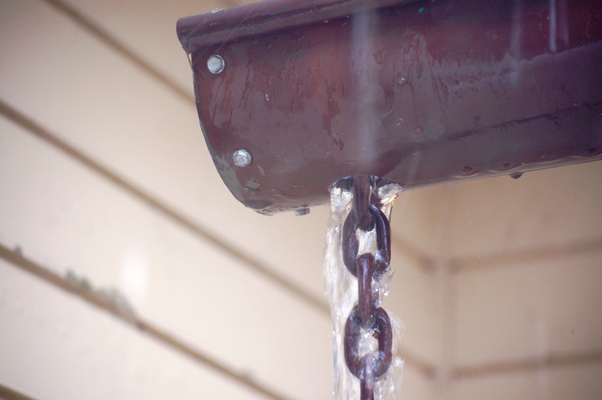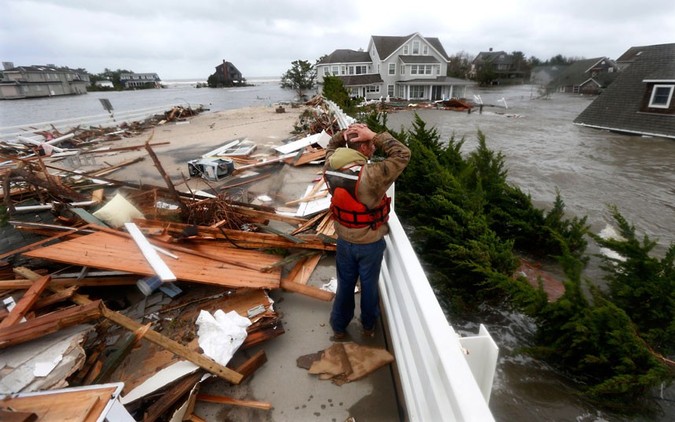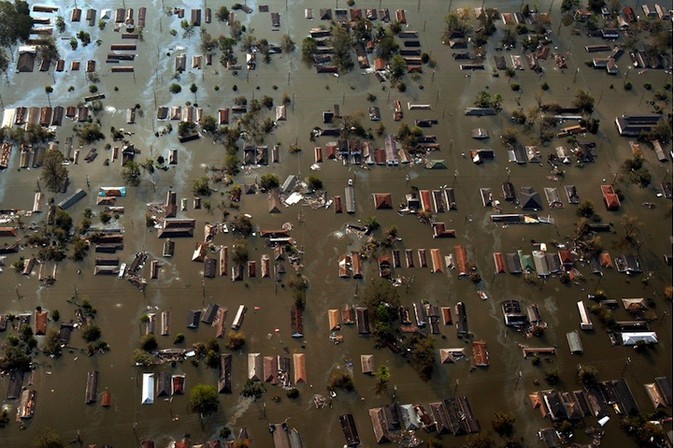The Wrack
The Wrack is the Wells Reserve blog, our collective logbook on the web.
The Wrack is the Wells Reserve blog, our collective logbook on the web.
It’s too early to tally the full damage from Hurricane Matthew, but I watched closely as four research reserves in our national system took the brunt of the storm.
2-3" of rain today. Flood warnings. Coastal flood warnings. A super moon high tide. "Multiple hazards in effect," declared the National Weather Service.
Really, quite a nice afternoon for a walk.
I've always loved our old bowl-and-chain gutters on the Coastal Ecology Center.

 Mantoloking, New Jersey, October 30, 2012.
Mantoloking, New Jersey, October 30, 2012.The following was published in the Biddeford-Saco Journal Tribune Sunday edition, 8/30/2015. (Continued from Remembering Katrina, Part I.)
Ten years ago this week, Category 3 Hurricane Katrina left nearly 2,000 people dead, hundreds of communities uprooted, and more than $100 billion in damage along the Gulf Coast. Adding in Superstorm Sandy’s devastation in October 2012, just two events swallowed the equivalent of: five months of Medicare spending, or two years of the federal education budget, or four years’ worth of the Federal Highway Trust Fund, our national gasoline tax-funded infrastructure bank that is now running on empty. So much money, washed out to sea.

The following was published in the Biddeford-Saco Journal Tribune Sunday edition, 8/23/2015.
Perhaps a butterfly flapped its wings in Hong Kong, or perhaps the gods who play dice with the sky rolled double sixes. Whatever the cause, the atmospheric disturbance that formed over the southeastern Bahamas on August 23, 2005, would go on to have massive effects.
 Down in sunny Tuckerton, New Jersey, a contingent of coastal Maine residents and Wells Reserve associates heard firsthand the accounts of locals affected by Hurricane Sandy. The meeting was designed to be an exchange of experiences and suggestions in regard to storm preparedness and coastal resilience. The discussion was geared toward vulnerable areas in Maine, specifically Drakes Island and the Saco-Biddeford area, both of which sent representatives down to NJ. The trip included dinner at a restaurant damaged by Sandy, a few tours of destroyed coastal communities, and an informative panel discussion with residents and municipal officials involved in the recovery efforts.
Down in sunny Tuckerton, New Jersey, a contingent of coastal Maine residents and Wells Reserve associates heard firsthand the accounts of locals affected by Hurricane Sandy. The meeting was designed to be an exchange of experiences and suggestions in regard to storm preparedness and coastal resilience. The discussion was geared toward vulnerable areas in Maine, specifically Drakes Island and the Saco-Biddeford area, both of which sent representatives down to NJ. The trip included dinner at a restaurant damaged by Sandy, a few tours of destroyed coastal communities, and an informative panel discussion with residents and municipal officials involved in the recovery efforts.